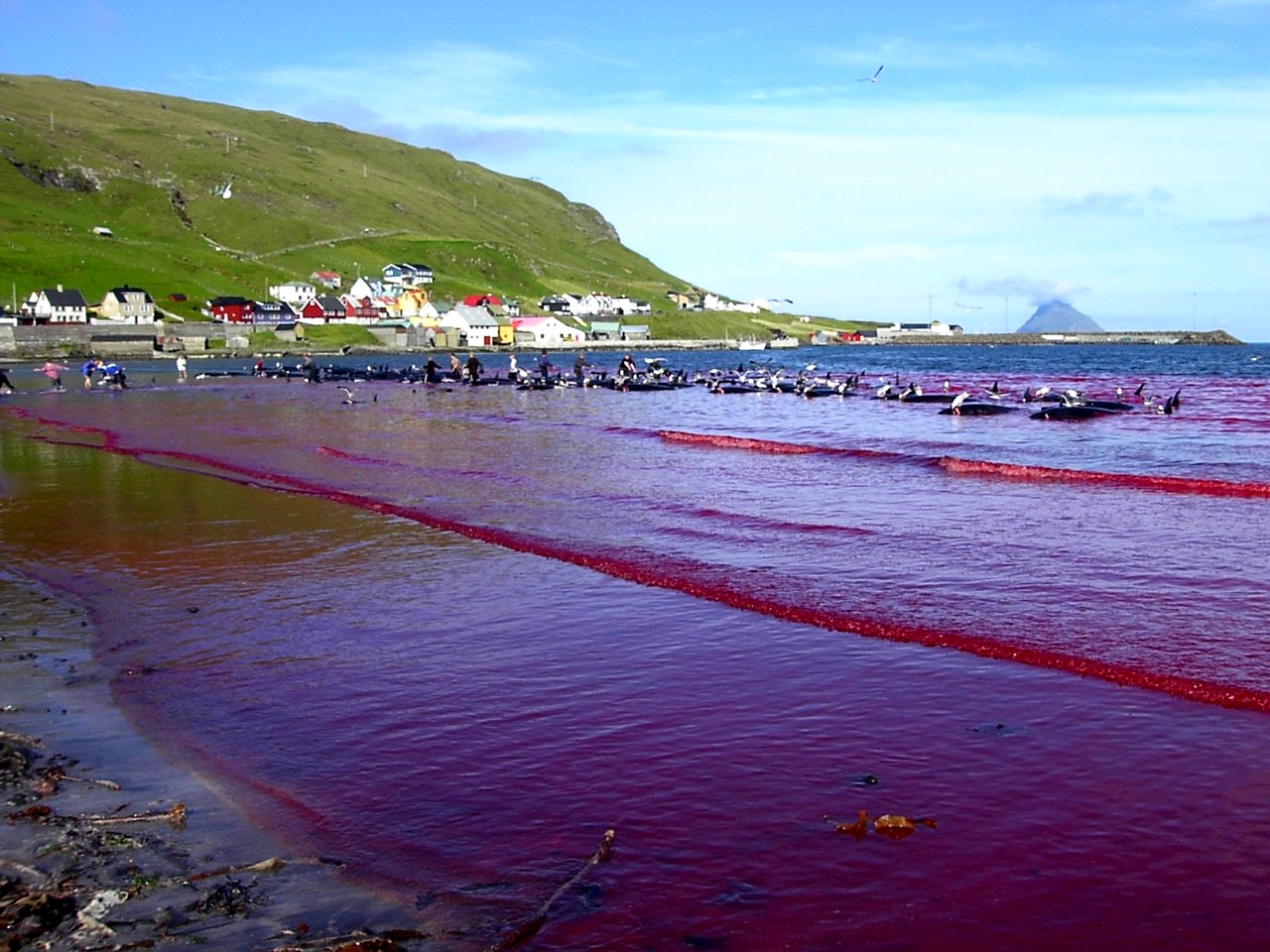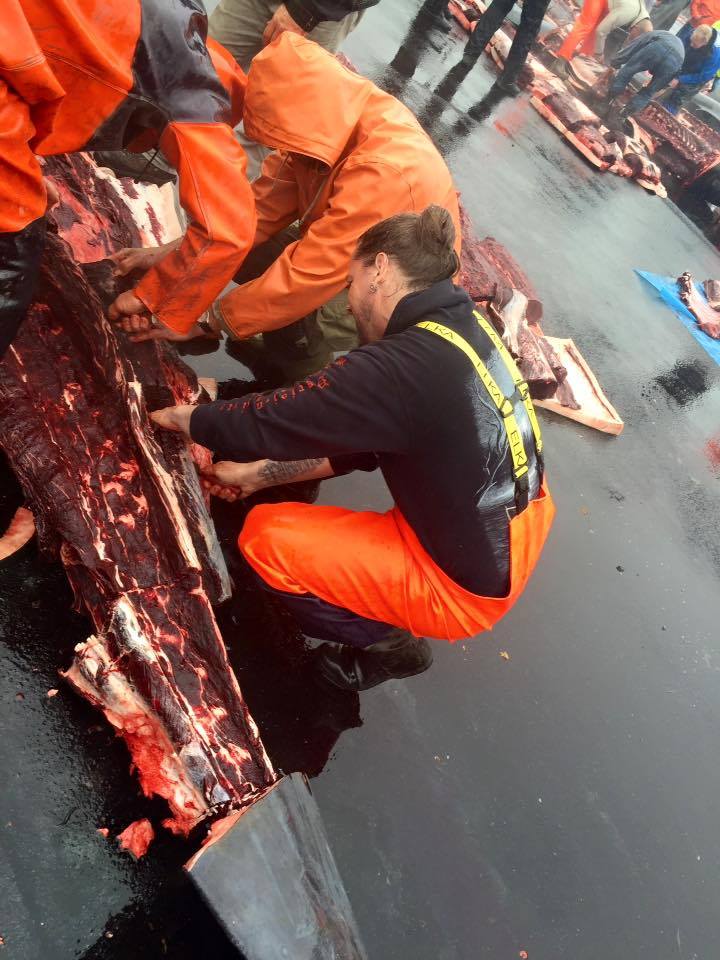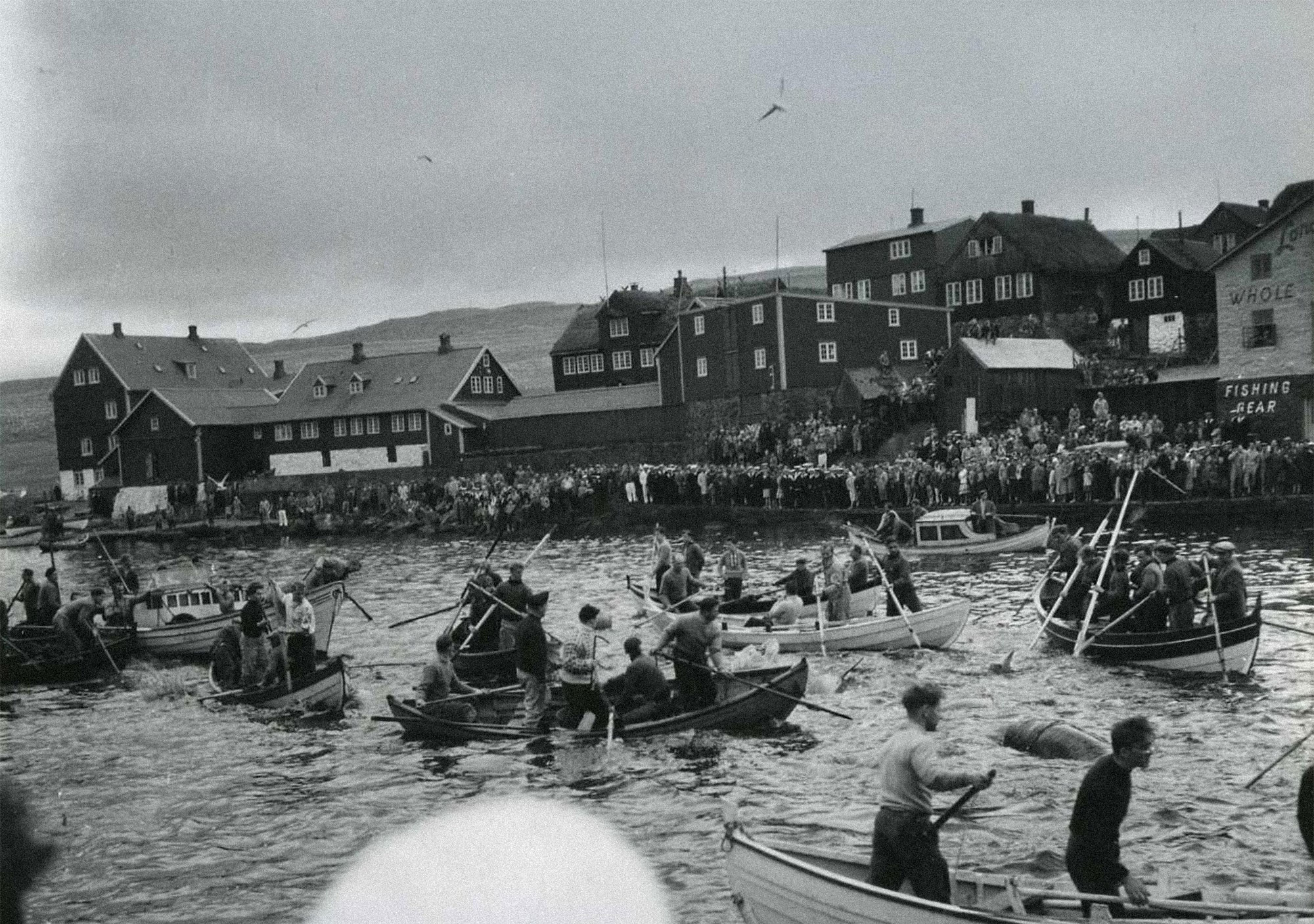Vestmanna · September 5th, 2016
Parting over
red sea
Grindadráp is a touchy subject on the Faroe
Islands. The locals are for the most part welcoming and express great interest in us and our stories. But once we ask about the pilot whale drives, the tone of the conversation immediately changes.
There are reasons for this defensiveness. Grindadráp is an ancient way of whale-hunting still practiced today all over the Faroe Islands. However, the tradition has long caused a great deal of international controversy. The Faroese metal band Týr are currently at risk of having their European tour cancelled due to a boycott over lead singer Heri Joensen’s participation in grindadráp. An American organization called Sea Sheperd has launched a campaign to stop venues from booking Týr. In 2014, Sea Sheperd activists arrived in great numbers on the Faroe Islands and managed to almost completely stop the whale hunt of that year; only 35 pilot whales were caught and slaughtered.

The sea is coloured red from the blood of grind whales. Photo: Erik Christensen.
When Nordic people settled here more than a thousand years ago, they brought their Old Norse culture with them, as they did to Iceland, Shetland, Greenland the Orkneys and the Hebrides. Food, however, was less plentiful and much harder to obtain than on the mainland. Whaling quickly became one of the most important food sources of the Nordic islanders – especially on the Faroe Islands, where it has played a great cultural and economical role for many centuries.
The practice of grindadráp is ancient. It is mentioned as far back as in the Seyðabrævið (“the sheep letter”) from 1298, a part of the Gulatingslov. Each summer, long-finned pilot whales (actually a kind of dolphin) are surrounded by boats and slowly driven towards a designated bay, where they are stranded and quickly slaughtered by men standing on shore. No money changes hands, and the meat is divided equally among the local community.

The picture of Týr’s Heri Joensen that sparked recent protests. Photo: Private.
Today the hunt is more strongly regulated by law than ever. The use of traditional equipment is outlawed, and care is taken to kill the animals instantly by severing the spinal cord. Prior to this, it is forbidden to hurt the animals in any way. Only 23 locations are authorized for grindadráp, and the weather has to be calm. Sometimes the hunt is called off entirely, as was the case in 2008. It is a prerequsite that the pilot whale is not listed as an endangered species, and less than a thousand animals are slaughtered annually.
Many young people we meet in Tórshavn are vegetarians. Paradoxically, they seem to think activists like Sea Sheperd are doing little for their cause. A young musician explained it this way: “The old traditions would eventually have died out on their own. When people feel their way of life is threatened, they are just likely to keep it up longer.”
The Vestmanna rubber stamp in this entry of our #nordvesttour travelogue is
typeset with Nordvest. The header image shows hunt for pilot whales in Tórshavn,
Faroe Islands, photographed by Bjarne Stoklund and licensed for use by
Nationalmuseet - The National Museum of Denmark.

